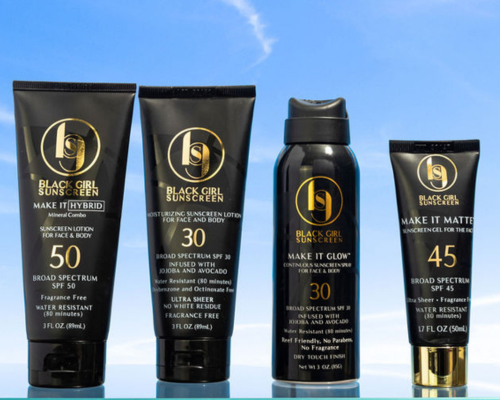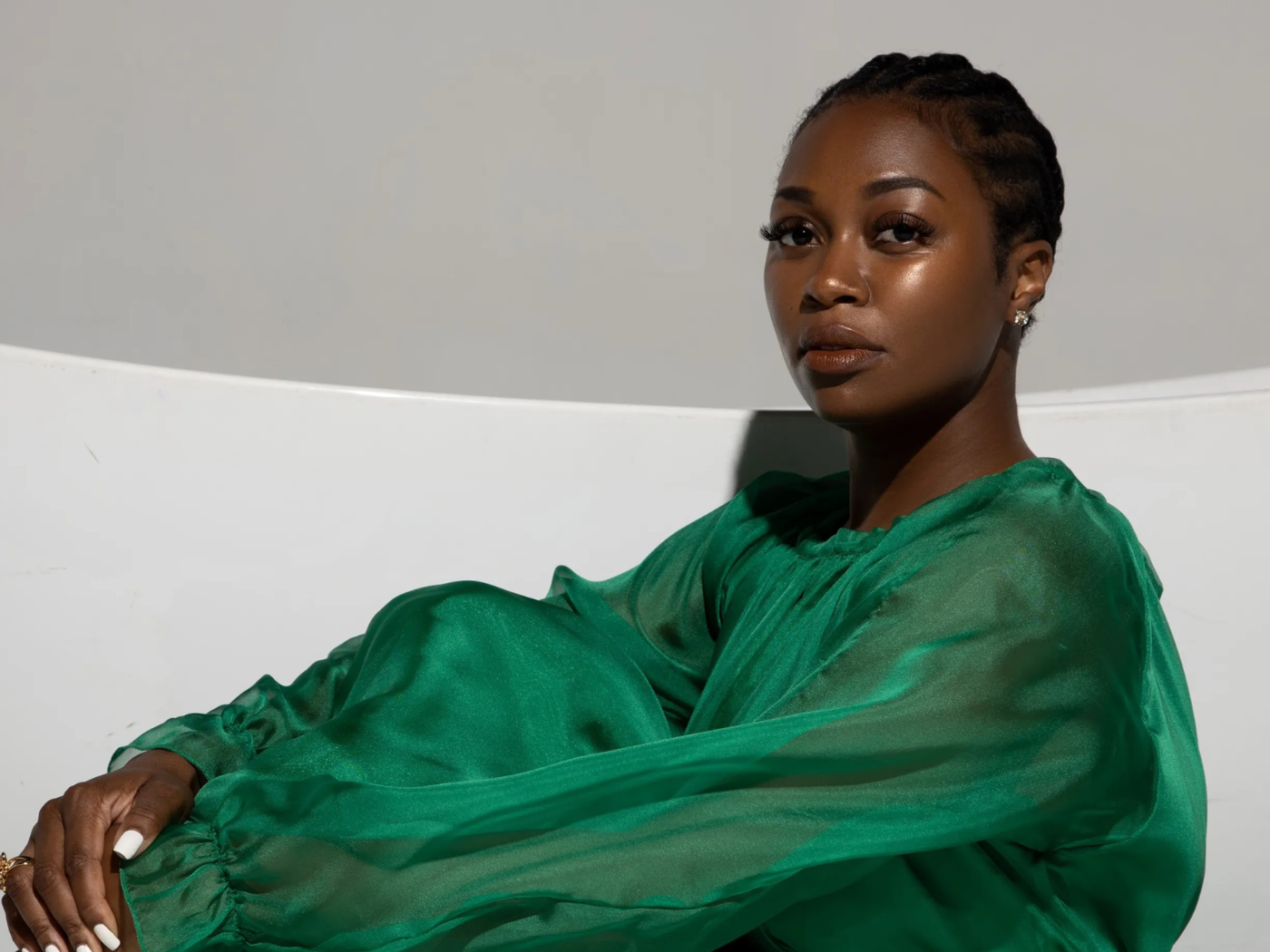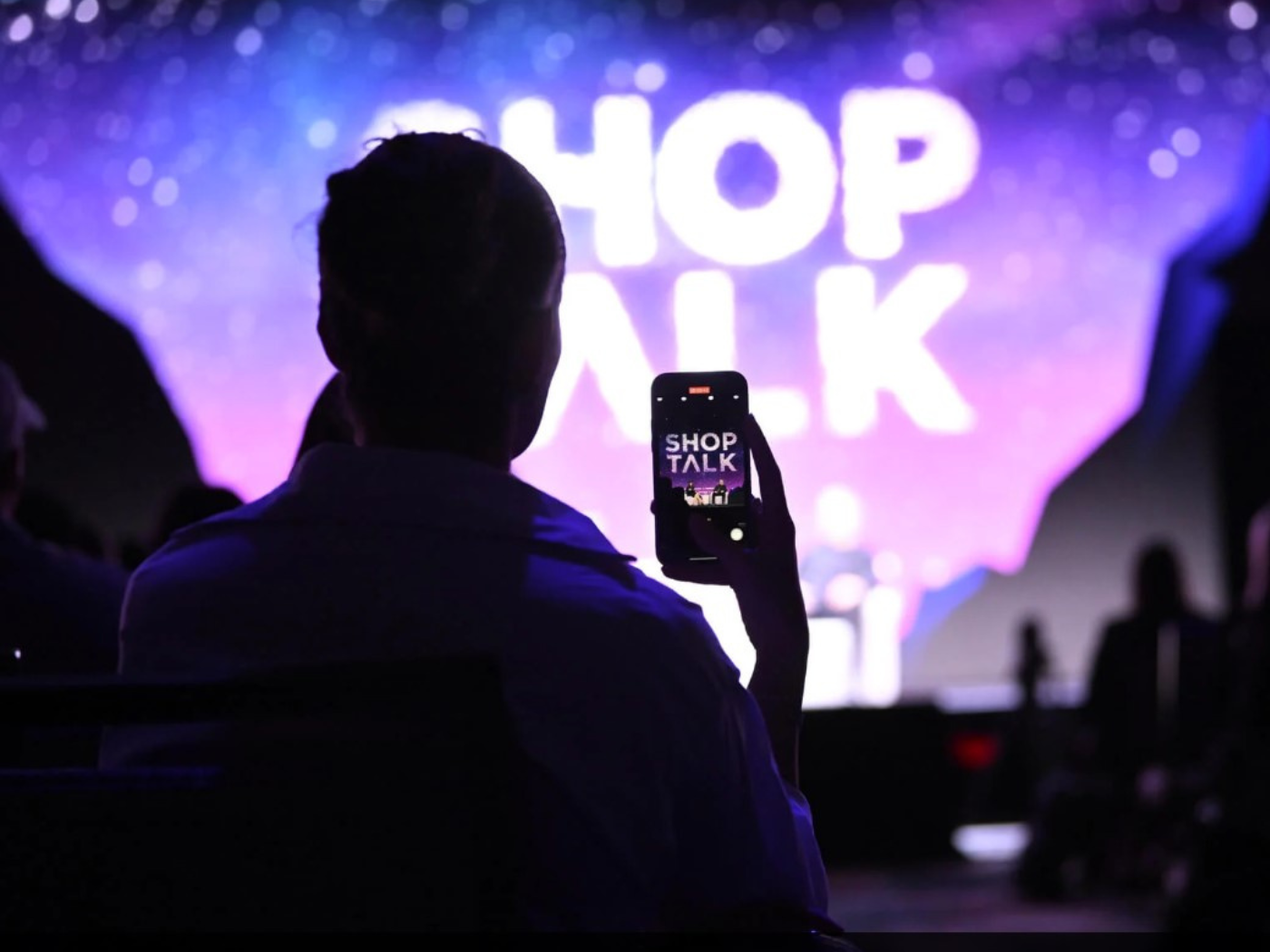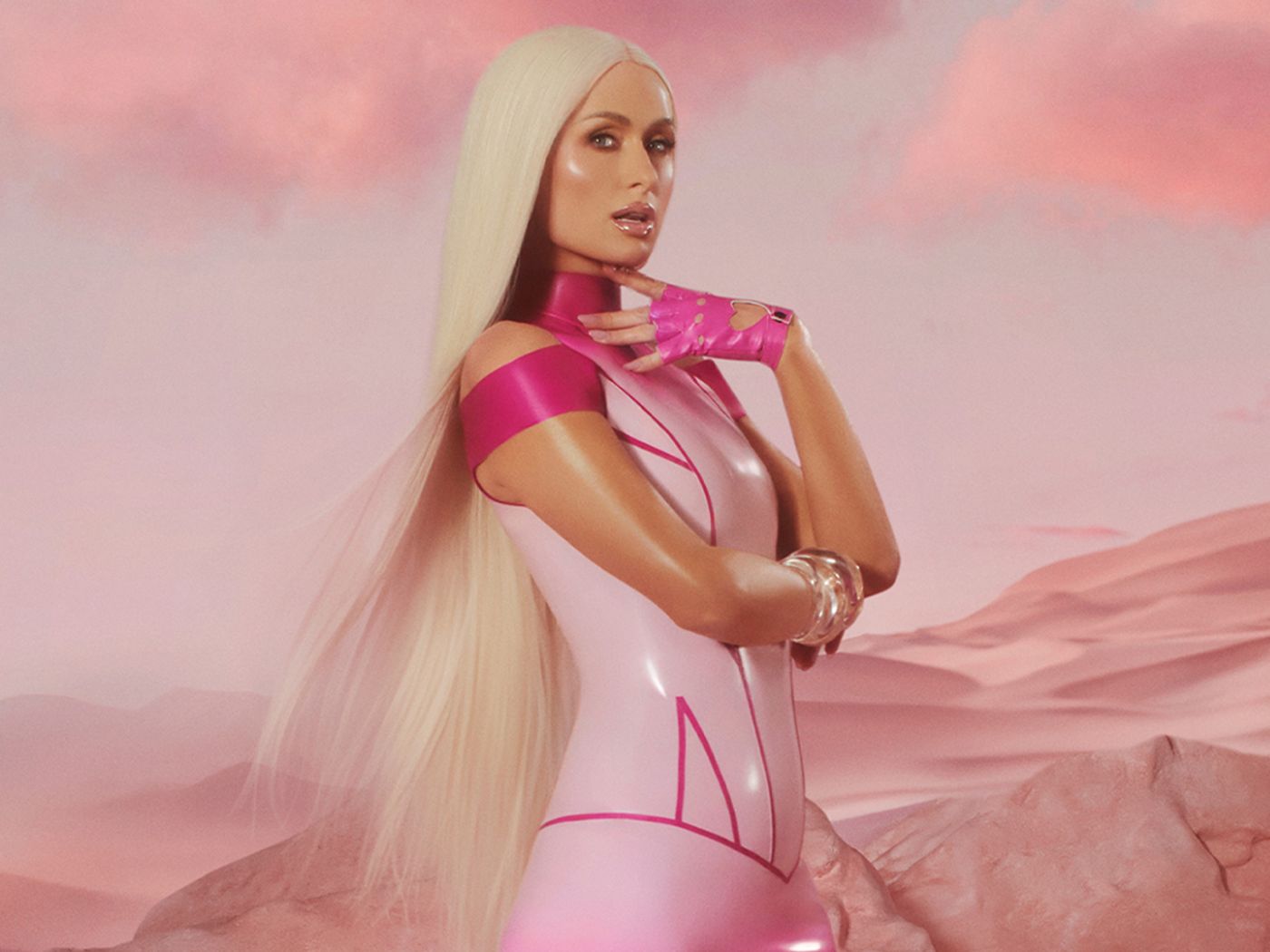From a young age, Shontay Lundy was not one to take her foot off the gas pedal. She aced her schoolwork; packed her schedule with extracurriculars; attended college (as an elementary education major before switching to business) and went to business school (while waiting tables). After a short stint in retail followed by 10 years in the rental car industry, Lundy, an east coaster by birth, decided to head west, where she finally allowed her brain to be “at rest” for a little while.
“And this is how I was able to come up with Black Girl Sunscreen. My brain asked, ‘what do you want to do, what makes sense, what feels good?’ I’ve always had ideas, but it takes time to execute them,” Lundy says.
The gap in the market came to her as a Black woman looking for sunscreen that didn’t leave a white cast. Her friends would say “you should wear sunscreen” and she would think about how what was on the market didn’t meet her needs. “Just because [legacy brands] give us something doesn’t mean we have to take it,” Lundy says.
However, Lundy immediately discovered that there were hurdles to developing sunscreen specifically for Black women.
“There’s this barrier to getting into the industry and being taken seriously. From an investment standpoint, people didn’t believe in the space — the name Black Girl Sunscreen implies it’s for young girls. The word ‘girl’ is a term of endearment in the culture. There were also no’s in terms of formulation. And there were higher minimums for producing sunscreens than other products,” Lundy says.
But she moved forward with her idea after asking herself three questions, and answering yes to all of them:
- Would other Black women wear it?
- Do I have the resources?
- Do I have the confidence?
“When you get a job, they teach you about 401Ks. I had $33,000 in mine, and I spent it on the business, I didn’t put a down payment on a house,” Lundy says about how she was able to produce her first batch of Black Girl Sunscreen.
It’s a good thing Lundy doesn’t let stress factor into her life.
“I don’t use words like stress because that’s not how I feel. My body may say stress, and my hair may say stress because I have grays, but I can handle it. Keeping your composure is important,” she says.
Lundy learned early on to create solutions for herself. In high school, she was one of six Black students in her graduating class. On the advice of a guidance counselor, she enrolled in various extracurricular activities to stand out. And, for graduation, she sat on the stage (as opposed to the audience) since she was class secretary. “From that moment I always took her advice on how I could separate myself from the rest.”
Her work ethic was similarly stellar, instilled by her grandparents early on.
“I was a first-chair violinist. Captain of the cheerleading squad. President of student government. I always wanted to be a leader,” Lundy says. “In my corporate career, I was a top performer year after year. The sun care market for Black women wasn’t established until Black Girl Sunscreen. So now, being the best means being true to our customers while honoring their complexion,” she says.

Black Girl Sunscreen is sold across the United States in 20,000 retailers, as it not only protects skin from the sun’s harmful rays, but it doubles as a moisturizing lotion thanks to ingredients like avocado oil, carrot seed oil, and jojoba seed oil. It also blends to a clear finish on melanated skin. And, on every bottle, it’s written “sunscreen made by women of color for people of color, because we get sunburned too.” Top sellers include Black Girl Sunscreen SPF 30, a moisturizing broad-spectrum sunscreen lotion, and BGS Kids, specifically formulated for little ones and sensitive skin, which includes chamomile and shea butter, as well as broad-spectrum SPF 50.
So, how did she get from breaking into an untapped market to selling two million tubes of sunscreen? Well, it was an exercise in personally recognizing the need for a product, spending one’s own money to create said product, and having the conviction (and confidence) to market it. Or, as Lundy might say, she had to “crawl, walk, run” (her personal motto) to get there. Ultimately, her biggest pain point became figuring out how to replenish her inventory after her first batch sold out.
“My back was to the wall when we started getting large [product orders] from retailers. And I needed support. Financial, not mentorship. I always say, women of color are highly mentored and under-funded.” Fortunately, an angel investor came through and Black Girl Sunscreen has been profitable since 2016.
Behind (almost) every beauty executive is a fun, creative, thoughtful person. To get to know our 2024 Visionary Award Honorees better, we put together a scaled down, professional version of The Proust Questionnaire, a list of questions popularized by French essayist Marcel Proust that’s believed to bring out an individual’s true nature. Here, Lundy takes the quiz.
CEW: What is your idea of perfect happiness?
SL: Being on the beach looking into the ocean.
CEW: What is your greatest fear?
SL: I don’t have any.
CEW: What is the trait you most deplore in yourself?
SL: [Shakes head.]
CEW: Which living person do you most admire?
SL: Deceased, my grandmother. I have a weird thing that I’m not very impressed by folks. Everybody is human, we all pull up our pants the same way. Someone I admire in business is Sarah Blakley.
CEW: What is your greatest extravagance?
SL: I don’t get mad.
CEW: What is your current state of mind?
SL: Tired but wanting more. I’m hungry. I want to skip the next two years and get to the third. I’m hungry and impatient.
CEW: What do you consider the most overrated virtue?
SL: Having a six pack.
CEW: Which words or phrases do you most overuse?
SL: I feel like…I think that…I saw this…
CEW: Which talent would you most like to have?
Lundy: To speak different languages at any given moment.
CEW: If you could change one thing about yourself, what would it be?
SL: I wouldn’t wake up with random pains now.
CEW: What do you consider your greatest achievement?
SL: Never really thinking about having a company and now being able to provide for 26 people. I feel really good about that.
CEW: If you were to die and come back as a person or a thing, what would it be?
SL: Only a Black woman.
CEW: What is your most treasured possession?
SL: My health. I feel honored to have it.
CEW: What is your favorite occupation?
SL: Violinist. My grandparents bought me a violin and it was an expensive purchase. I played it, and I was a perfectionist. I stopped playing in high school because I wanted to be cool and cute, and now every time I hear somebody phenomenal, I get goosebumps.
CEW: What is your most marked characteristic?
SL: Probably keeping my composure. And being able to speak off the cuff.
CEW: Which are your favorite brands?
SL: Black Girl Sunscreen.
CEW: What is your greatest regret?
SL: I think that I’m doing everything I’m supposed to be doing.
CEW: What is your motto?
SL: Crawl, walk, run. Follow your intuition. And treat others how you want to be treated.




